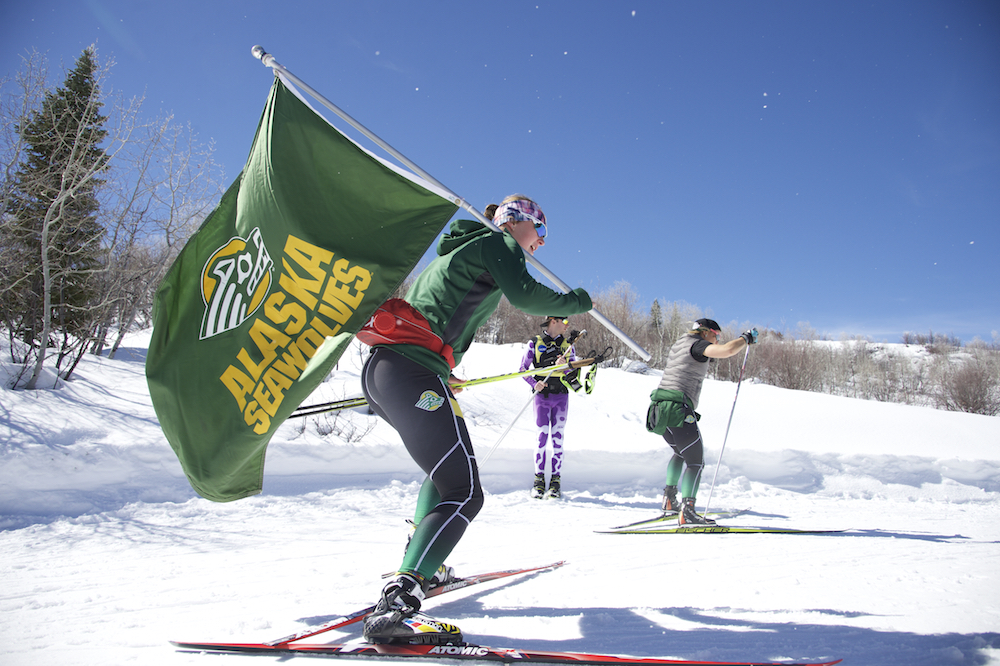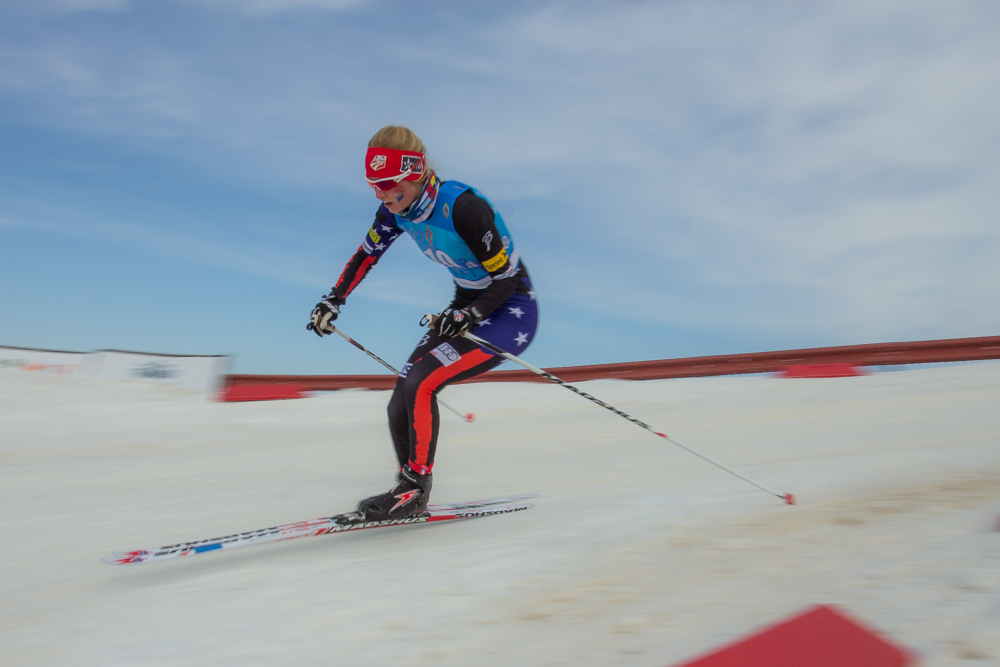
ANCHORAGE, Alaska – There will be a fully funded cross-country ski team at the University of Alaska Anchorage this school year, but all bets are off when it comes to evaluating priorities across the athletic department for next year. That’s the word from University of Alaska Anchorage (UAA) officials as the Alaska Legislature drags through its latest special session with no final budget yet approved.
As FasterSkier previously reported, this spring saw the UAA nordic ski team concerned for its future in light of a suddenly impoverished oil-dependent state budget. Its head coach reached out to local supporters, insisting that ski teams are “usually the first on the chopping block” when it comes to making budget decisions.
These fears were in large part driven by mathematical reality: the UAA Athletic Department had been instructed to institute cuts of $1.7 million to an overall department budget of $10.5 million. This amount represented roughly 16 percent of the overall budget, and as much as one third of the total general dollars that the department receives annually.
Last week, as the Alaska Legislature continued its tortuous progression toward passing a budget for the upcoming fiscal year that begins on July 1, UAA got the $1.7 million back.
As the Alaska Dispatch News recently reported, the University of Alaska Board of Regents last Friday approved a budget that saw decreases in state funding and would lead to hundreds of layoffs across the university system. But the budget also made less severe cuts than had been expected, reducing the university budget by $15 million rather than a feared $50 million. While the overall budget has still been reduced, the budget that was passed came as good news to university administrators who had been preparing for even more reductions.

Or as UAA Athletic Director Keith Hackett told FasterSkier in a phone interview Friday afternoon, a cut of “15 million is still a lot, but it’s less than 50 million.”
Hackett was pleased to say that, within the UAA athletic department, “nobody will be affected” for the upcoming school year. (The state budget the Alaska Legislature is currently finessing is for the 2017 fiscal year, which begins on July 1, 2017. UAA sports for the 2016/2017 school year, which occurs entirely within the 2017 fiscal year, resume in August 2017.)
Hackett emphasized that the return of the $1.7 million in athletic department funding was a short-term solution, and not a permanent reprieve. “I still believe that some time in the coming year we’re going to have to make some very tough decisions,” Hackett said. “We’re just postponing the challenging decisions we have to make.”
“I still believe that some time in the coming year we’re going to have to make some very tough decisions. We’re just postponing the challenging decisions we have to make.” — UAA Athletic Director Keith Hackett
The next step will be for the athletics department, like virtually all other components of the University of Alaska system, to go through the Strategic Pathways process, a budget analysis and restructuring program that aims to evaluate all programs within the University of Alaska system, cut some, and consolidate others. The increase in funding, Hackett explained, was “one-time money to cover what our reduction was going to be. … That would allow us to go through the Strategic Pathways process” during the coming school year.
The state’s other NCAA ski program, at the University of Alaska Fairbanks, previously told FasterSkier, “we’ve been assured that it’s business as usual through 2017.”
UAA Head Nordic Coach Andrew Kastning, in a Monday phone interview with FasterSkier, deferred to Hackett for an official statement on the budget process or its implications. But he did say he was relieved.
“I am quite relieved to have some stability moving into next year and a chance to work with some bright incoming and returning athletes that are on the ski team,” Kastning said. “We’re a very young team for next year … so perhaps having some stability moving forward, and to know that I’ll get to help develop that, is a great opportunity. … It’ll be a new experience for me – I’ve never had a team this young. I look forward to the places they can go.”

The UAA roster includes at least six incoming freshmen, with Hailey Swirbul being one of the most boldface additions. Swirbul, a junior skier from Aspen, Colo., who represented the U.S. at the 2015 Junior World Championships in Almaty, Kazakhstan, signed a national letter of intent with UAA in November 2015.
She is joined by freshman women Michaela Keller-Miller and Hannah Rudd of Loppet Nordic Racing, Canadian Natalie Hynes, Bjørk Hågensen of Bozeman, Mont., and Sweden’s Zacke Torreson for the men.
Swirbul and her teammates join a ski team that is fully funded for now, but which may be going through a similar funding exercise again during the upcoming school year, with an unknown outcome and uncertain future. The return of funding from the Alaska Legislature “gives us a little bit of a reprieve,” Hackett said. “But the time will come again, later in the year, that we have to make those decisions again.”
Gavin Kentch
Gavin Kentch wrote for FasterSkier from 2016–2022. He has a cat named Marit.



